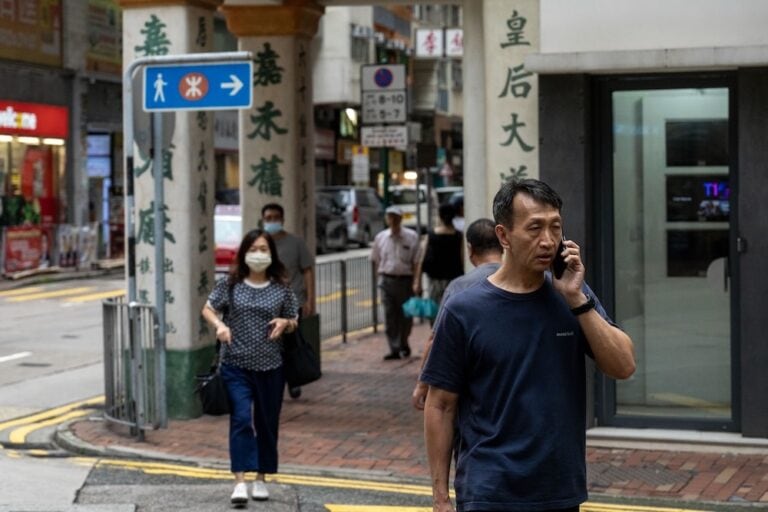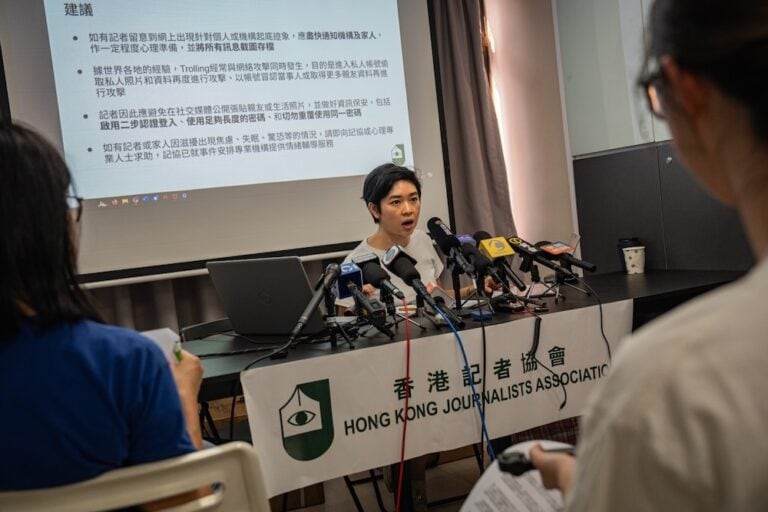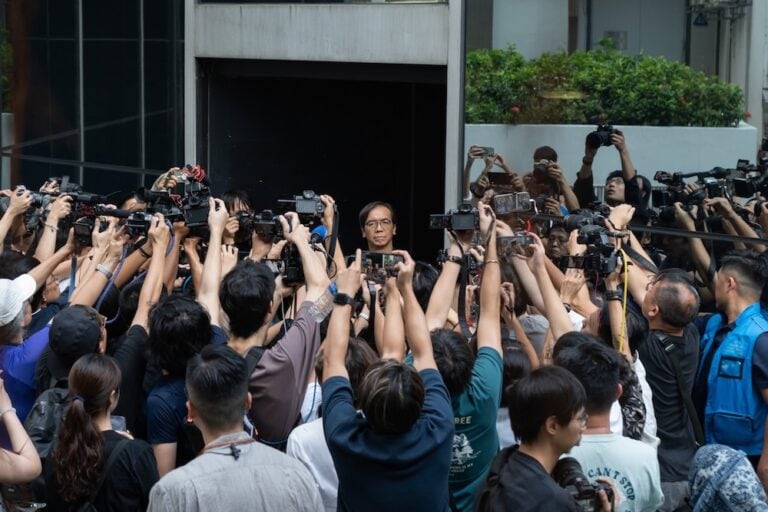The Hong Kong Journalists Association has released its 2020 media report titled 'Freedom in Danger'. The report cited the challenges faced by the media sector over the past 12 months such as the COVID-19 crisis and the 'political storm' generated by the anti-extradition protests and the recently passed national security law.
This statement was originally published on hkja.org.hk on 7 July 2020.
Hong Kong has been suffering from the shock caused by the political storm whipped up by the prolonged anti-extradition bill protest, the novel coronavirus and the national security law in the past 12 months, says Chris Yeung, Chairperson of the Hong Kong Journalists Association. Yeung made the comment at a press conference today (July 7) when unveiling the Association’s 2020 annual report, entitled “Freedom in Danger”.
“The national security law poses particular challenges to media organizations and journalists, press freedom is on the verge of crisis,” Yeung added.
Since June 2019, Hong Kong people have taken to the streets. Local and foreign journalists became the target of the police’s firepower. Relations between the police and reporters dropped to the freezing point. The HKJA and other media groups met with Commissioner for Police Chris Tang Ping-keung in May 2020, but he refused to give a concrete pledge that the Police would not use force against reporters.
At the time the annual report went to print the national security law had not been officially enacted, and detailed provisions had not been announced. HKJA has been concerned that the law will further undermine freedom of the press. In the end, the final version of the national security law enacted would be more stringent than expected. The “chilling effect” was observed soon after the law was implemented. Various shops and restaurants had their protest slogans or signs removed. The press always bears the brunt, it is expected that self-censorship will be more serious than ever.
HKJA appeals and recommends in the annual report the following:
1. The NPC should scrap plans to enact national security law for Hong Kong.
2. In view of social divisions the Government should not restart legislative work on Article 23 until after there is a social consensus.
3. The Police should stop obstructing the work of reporters and the use of violence. They should coordinate with reporters. The Police should not pursue the introduction of a unified press card system and identification arrangements for reporters in public demonstrations.
4. The Government should conduct an independent investigation into the Police’s obstruction of work of reporters and use of violence against them since the anti-extradition bill protest began in June last year.
5. The Government should speed up the enactment of a freedom of information law and an archives law that are effective in enhancing public access to information and archives.
6. The Government should stop putting pressure on RTHK and respect its editorial autonomy.
Contents of the report are:
In Chapter 1, Chris Yeung maps out the threats from various directions that journalists are facing. The article analyses the gradual erosion of the city’s freedoms and the unlawful acts of the Police in obstructing reporters and use of force, which undermined press freedom.
Chapter 2 is composed of three articles. Ronson Chan gives a first-hand account of the problem of police violence. HKJA has sought a judicial review on the Police’s enforcement of law in relation to the reporting activities of journalists. Kris Cheng reports on the various arguments. Citing “anti-doxxing”, the Government and police union have made separate attempts to seek injunction or judicial review in courts to restrict public access to personal data of police officers, one of their targets is the voters’ registrar. Shirley Yam analyses the problem and HKJA’s legal action. Another battlefield of the social movement is public opinion. Alvin Lum takes a look at the Government and Police’s media strategy.
There are three articles in Chapter 3. Au Ka-lun, takes a wider view of the ups and downs of TVB. Radio Television Hong Kong, the Government’s public broadcaster, has become the target of a joint attack by the mainland media, officials and the pro-establishment camp. RTHK Programme Staff Union tells the story of their dilemma. Student reporters are the subject of a controversy in the social movement, which saw more students doing reporting at the scenes. Tse Chung-yan tells their story.
Ching Cheong has done massive research documenting how the mainland authorities kept the world in the dark over the coronavirus. The lesson to be learned by China and the world is the vital importance of a free and independent media.
The Appendix presents the result of the ‘Press Freedom Index 2019’ and the ‘Survey on the violence against journalists when covering public order events’.
The Annual Report can be downloaded HERE



